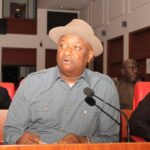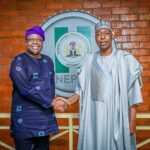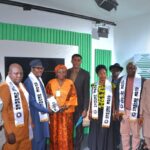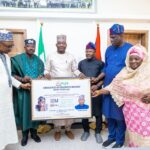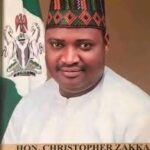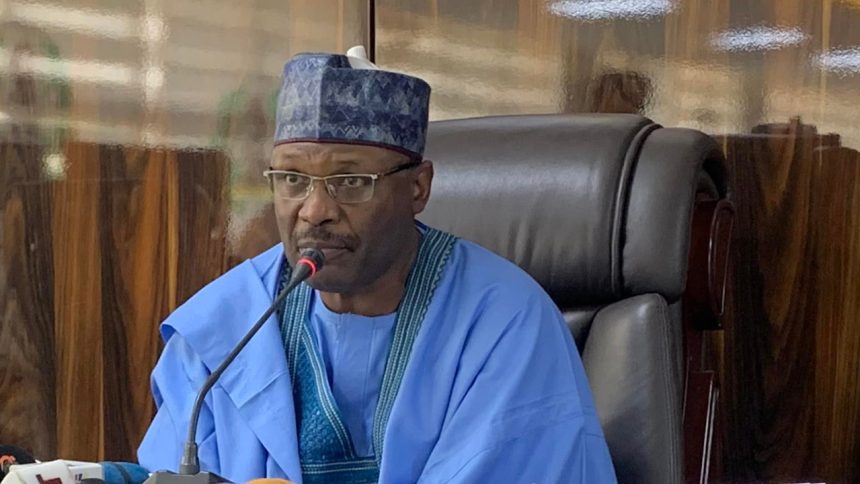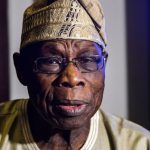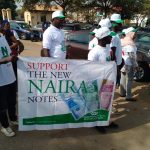Ahead of the 2023 general elections, the Independent National Electoral Commission’s (INEC), Election Monitoring and Support Centre (EMSC) Committee, has said that the country’s future depends on the performance of the permanent and ad hoc staff who would manage the forthcoming elections.
The remarks was made on Thursday by Prof. Mohammad Kuna, the EMSC Chairman and Special Adviser to the INEC Chairman, Prof. Mahmood Yakubu at the EMSC Amber Zone State -Level Implementers’ Workshop in Lagos for officers from 17 Southern states across the country.
It would be recalled that the first batch of the two-days training was held on Monday and Tuesday in Lagos for officers from the 19 Northern states.
Kuna stated, “This is our country, all of us have to collectively put hands together in order to see that this election is run smoothly.
“Everyone, either ad hoc or permanent staff, we are all Nigerians and we are all doing this for our country and for the consolidation of democracy.
He added, “The future of this country depends on what we do as election managers as permanent staff and ad hoc staff.
“They have to take responsibility, this is an obligation and national duty for us to do what is right and ensure that the elections are credible.”
Speaking about the preparednes of the electoral body, Kuta noted that materials for the forthcoming elections are daily being sent to various states ahead of the poll, hence the need for EMSC to monitor the deployment to see the gaps and fix them.
“As we speak now, materials are going to states. We want how to start monitoring accurately, day by day what each state has received to see whether there are any gaps.
Kuna added, “Conducting an election needs thousands of materials which have to be sent to states and thousands of activities have to be planned.
“We have to systematically checked these activities and this meeting is meant to begin to check these activities and materials.
“That is the final check to see if there are gaps and we will fix the gaps, and if there are issues, we fix the challenges before the elections.
While assuring the electorate that the election would be credible, Kuna said that the INEC Chairman, Prof. Mahmood Yakubu, had consistently on various occasion promised Nigerians that the 2023 general elections would be one of the best election ever conducted in Nigeria.
According to him, Nigeria can see this in the governorship election conducted in Ekiti and Osun and other elections conducted by INEC.
“Our elections keep getting better everytime we conduct election. There is no cause for alarm,” he said.
According to him, it is exactly 29 days to the opening of polls on Feb. 25 for the Presidential and National Assembly elections and 43 days to that of the Governorship and State Houses of Assembly elections on March 11.
He said that 93,469, 008 voters would cast their votes across 176,846 polling units clustered in 8,809 Wards across the country.
Kanu said that preparations had reached an advanced stage, and INEC was in the last phases of the implementation of this election.
He said that election materials and personnel had to be procured, checked, secured, delivered, trained, and deployed in the right quantities, to the right places, at the right times.
According to him, since its inception, EMSC has provided the commission with a broad framework for enhancing coordination, efficiency and effectiveness in the planning and implementation of electoral activities.
Kuna stressed that the EMSC was designed to provide election managers with a tool to visualise electoral activities as they were or should be implemented.
“The EMSC is a planning, monitoring, implementation, early warning, and support system that enables the commission to proactively plan, monitor and implement electoral activities,” he added.
Kuna said that it also helped to provide a level of visibility over field operations by helping to identify electoral risks or threats early enough in the planning and implementation of an election.
He added that the EMSC helped to provide support to field officers and activities in areas when and where such support might be required.
He said that it focused on the training of Administrative Secretaries, Heads of GAP, as well as the three Desk Officers of the EMSC to constitute a core of EMSC trainers for each of the 36 states and the FCT.
Kuna said that the personnel assembled under the leadership of the Administrative Secretary, were expected to implement a training programme for Electoral.Officers (EOs) and other staff at the state level.
“This training provides us at both headquarters and state level, an opportunity, and the necessary tools to have clear assessment of the readiness statuses, as well as to have total control over all planned activities,” he said.
He urged the officers to meticulously monitor the implementation of the 2023 general elections in the remaining days to identify gaps, assess risks, and provide overall leadership and guidance to the entire range of ad-hoc staff in the field.
According to him, identified gaps must be filled and emergent risks addressed so that voters can come out on election day to cast their votes for their preferred candidates.
He commended the Development Alternatives Inc. (DAI) of the European Union Support to Democratic Governance in Nigeria (EU-SDGN) for its continuous support for INEC programmes and in particular to the EMSC.
In his welcome address, Mr Olusegun Agbaje, the Resident Electoral Commissioner in Lagos State, recalled that the 16-member EMSC committee reconstituted in 2018 with emphasis on the need to constantly track all levels of preparations for the elections.
Agbaje, who was represented by INEC’s Administrative Secretary, Mr Adebisi Ajayi said: ” The conduct of a free, fair, credible and inclusive election entails proper planning and the entrenchment of monitoring mechanisms for all electoral activities in order to achieve the desired success.”


